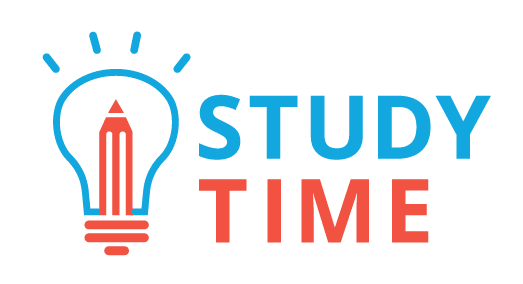Let’s all stop kidding ourselves – studying for exams is insanely hard. The content is confusing, you have no idea what they’re about to ask you, remembering everything is borderline impossible, and above everything else, you never really know where to start.
And, to make matters worse, loads of the “study tips” you can find on the web are all about long term solutions. You know, it’s all about starting good habits in January, start revising content as soon as you learn it, et cetera, et cetera. Sure, this is all great advice, but if you need to learn content fast, it’s not always going to be super useful.

Here at StudyTime, we understand that you don’t always have a few months to practise for your exams. We know how tough it is to be on the last-minute revision hustle, whether it’s for mocks, the MCAT, or even your end of year exams. Luckily, there are so many ways to make life easier.
This article will run through everything from how to boost your organisational skills for a more productive and effective study session, right through to what you can actually do during your pre-exam cram. We’ll round things off by breaking down some common study mistakes, and what we can do to fix them.
Let’s get into it!

The Importance of Strategising
Whether you’ve got a lot to learn in a short amount of time, or you have a lot of time but little motivation, you’ve got to work smarter, not harder. Being strategic can mean a lot of things when it comes to school, but we’re going to focus on a few key points:
- Using your time in the weeks and days leading up to your exam wisely
- Knowing what you’re really working towards – such as, achieved, merit, or excellence
- Being as proactive as you can be with your revision
While all of these things are important by themselves, they all contribute to you having a strong, well-rounded plan for how you’re going to prepare for your exams. Of course, we’ll be taking a look at these three points in more detail.
Time Management
It doesn’t matter whether your exam is in two months or two days, time management is crucial to succeed in an exam. If we’re being totally honest here, time management is a tricky skill that takes a while to truly master. While we should be aiming to improve our organisational skills throughout the year, life can get in the way, and suddenly, it’s November and we haven’t studied once.
Oops!

Still, no matter how close you are to your exams, there’s always so many good reasons to organise your time wisely. Here are some of the top ones:
- If you’ve got an entire subject to revise, being smart about your time management will help you make sure you haven’t missed anything in the topic.
- Deciding when you will begin studying, and how long you will study for, can help you to feel more organised, reducing those feelings of being stressed and overwhelmed. Being in control = better focus. Woo!
- Time management is the secret to being just as prepared for all of your exams relatively equally, rather than going all-in on just one or two subjects and forgetting about the rest.
Okay, great, we’re all on the same page – time management is kind of a big deal. The next question we need to address is, how do we manage our time, even if we don’t have much time to manage?
There’s two secrets to this: organising and prioritising.

Imagine you’ve got a science exam and an English exam coming up in the same week, with maths and media studies coming up the week after. Of course, you’ll want to make sure you’re equally ready for all of these exams. Each exam has its own subtopics – science has acids and bases, mechanics, and genetic variation, while English has the written text essay, the film essay, and the unfamiliar texts analysis.
To tackle all of this, you’ve got to be organised!
Being organised here might look like dedicating a certain amount of time each day to all exams, and each day might focus on a different subtopic. The key here is that you’re working on all of your exams, without neglecting any of them. Pay attention to what’s coming up in the future, too – maybe even make a list of upcoming deadlines if you need to – and never leave things until the last minute.
Also, totally ignoring one (or more) of your subjects just because it feels easy or you can’t be bothered is a recipe for disaster! Instead of shunning a subject altogether, try to carefully and realistically prioritise your revision.

Prioritising means that you’re putting the most important stuff first, and cutting out the less important stuff wherever you can. This is really important when you’ve got lots of exams on the horizon.
To prioritise, focus on finding a balance between working more on subjects you know you struggle more with, without totally blocking out other subjects. It’s important that you still dedicate some time to those other subjects – it’s better to get two achieved grades in different subjects, than one merit and one not achieved. Be careful!
- As always, there’s an exception. If you’re really behind and worried about passing, prioritising might mean that you need to drop one exam to focus on some others.
- For example, if you know that passing the L2 physics exam would take hours of revision, but you aren’t taking L3 physics and you don’t need the credits, then it would make sense to skip this exam.
- We recommend that you talk to your teacher(s) to see if passing up on an exam or two might help you manage your time better!
To know more about using time management to learn a lot of information in a short period, check out one of our top StudyTime articles from earlier in the year: How to Catch Up On Your Studies.

Short-term Goal Setting
We know what you’re thinking – bro, my exam is in two days, I don’t have time for goals!
Hey, buddy – you’re wrong. Goal setting is always the secret to successful studying, no matter how much time you have. Allow us to elaborate.
As students, we can save a lot of time by being smart about what we learn. We’ll put it this way – if we’re aiming to pass an exam, it’s a waste of our time to spend three days trying to figure out how to answer one single excellence question which may or may not show up in the final exam.

So, if we’re aiming to pass, we need to make sure we’ve got a great understanding of those achieved-level questions first, before we move onto those trickier merit and excellence skills. To figure this out, ask your teachers about what skills are needed for the base-level understanding.
You can also turn to past exam papers and their assessment schedules, both of which you can find on the NZQA website or through a quick Google search. These will tell you what sort of concepts are assessed to what degree. An example of this would be science, where knowing how to write and balance equations is a merit level skill.
Side note – if you’re aiming just for an achieved mark, you shouldn’t ignore merit and excellence questions altogether! In most subjects, answering a merit/excellence question with partial understanding (AKA, pointing out some key definitions and ideas) is enough to pass.

If you’re having trouble working out what topics are actually assessed in each standard, check out StudyTime’s subject checklists here. These are often ordered from most simple to most complex per section, so start from the top and work your way down!
Be Proactive
This one should go without saying, but here we are, saying it away. That’s because being proactive with your studying is incredibly important!
Call yourself out if you find yourself saying, “Oh, I’ll start studying later/tomorrow/next week”, give yourself a figurative (or literal) slap on the wrist. Stop putting off revision! There’s no argument you can give us that’ll justify putting it off.

If you think there’s no point in studying too early because you’ll just “forget the information before your exams”, think again, buddy. Use the time now to start learning and remembering important concepts, as well as creating resources, such summary sheets and flashcards, that you can use later in the year.
Still don’t believe us? Here’s the science on why starting to study ASAP is really important for stress-free exams and better revision.
Where to Start
The first hurdle when it comes to revision is getting motivated. However, if you’re this far into this article, we’re willing to bet you’re more or less prepared to put in the work – which is great! However, the second hurdle can often be the one that throws you off entirely. Sometimes, even if you want to, you just don’t know where to start.
For this next section, we’ll break down a few things that’ll make it easier to kickstart your study sessions. We’ll even give you a few great suggestions of simple but effective study methods you can use, if you’re not sure how to study in the first place.
Set the Agenda
We’re here to put a stop to aimless studying. Whenever you sit down to get some work done, you need to make sure you have a plan for what you’re going to work on.
And no, “English” is not an answer.
Decide what specific skills you’ll be focusing on – aim for anywhere between one to three skills, depending on how long you want to study for. These could include writing introductions, remembering quotes, and/or analysing themes for your English novel, poem, or film.
Sitting down to just focus on one subject in general is not the move. You can’t learn everything for one topic at once despite how hard you try, so separate subjects out into manageable, bitesize chunks you can tackle bit by bit. As a result, your study sessions will be more productive, and it’ll be easier to measure your progress.
- Don’t know what your agenda should include? Check out those StudyTime subject checklists we mentioned earlier, and pick out a few key points to work on!
Collect Your Resources
This step is a quick one, but it’s such a goodie. The best study sessions come from having everything you need before you get started.
Before you even sit down, be sure that you’ve got all the bits and pieces you need. Yes, obviously grab your computer, some paper, and a pen, but try to go beyond that, too. Some key things to find could include:
- Your notes from class
- A StudyTime walkthrough guide, to help you learn content
- The textbook you use at school (SciPad, Walker Maths book, etc), for notes and questions
- Either a printed or online copy of a past exam paper, to test your understanding when you’re finished revising
We already know what we’ll be focusing on too, since we’ve already set the agenda. That means we can find specific resources relating to what we’re going to work on. For example, look for the specific pages in your textbook, a YouTube video explaining the topic that you’re working on, and the past paper question(s) you want to be able to answer.
A Crash Course in Revising
Okay, we’ve got a plan, we’ve got our resources, now it’s time to actually study.
But “studying” is a really vague term, and there’s always students who don’t really know what that means in every single grade bracket. Yep, you heard us – just because somebody’s getting excellences doesn’t mean they know how to study. Just take a hot second to let that sink in.
Still, we’ve got to be realistic. Learning to study is a long road, and if you don’t have months to practise, we need to jump into the fast and effective study methods that’ll get the job done quick.
If you have no idea how to study, here are some pretty basic, but super effective, study methods you can try out ASAP! We’ve organised these by difficulty levels, so try to place yourself on a beginner/intermediate/advanced scale, and give some of these a go.
Beginner:
- Watch two to three YouTube videos on a topic, and take notes during the videos in your own words. When you’re done, either explain the concepts to a friend, or talk to yourself (yes, that’s normal) and pretend you’re making your own YouTube video.
- Find a concept you don’t understand, and read information from different resources (e.g. textbook notes, a website article, or your PowerPoint slides from class) explaining it. Keep reading around until you can confidently draw the concept off the top of your head.
Intermediate:
- Pick a topic, and from memory, jot down all of the relevant ideas you can remember relating to that topic. For example, in English, write down all the characters, themes, and plot points from your novel or film. For maths, you can list all of the skills you know, and when to use them. Once you’re out of ideas, use notes to fill in any gaps.
- Use short, specific questions to practise active recall. By “short questions”, we mean the ones you find in textbooks that are quick to answer and test the same skill repeatedly. If you don’t have a textbook, Google some questions on your topic and fire out some answers!
Advanced:
- Answer a past exam paper without your notes, and be sure to time yourself, like you were in an exam. Mark your own answers against the assessment schedule, and find anywhere from two to four places you can do better next time. Rewrite your answer with these changes made.
- Find two or three excellence-level concepts for each standard. Test yourself on each one, and if you can’t get it, use a marking schedule or answer sheet to talk through how they got the answer. Revisit notes or StudyTime guides if you get stuck.
Revision Problems, and How to Fix Them
Whether you’re revising right before your exam or with plenty of time to spare, you don’t want to be wasting time. So, to help you make sure your learning techniques are helping you more than they hinder you, we’ve got a list of study red flags, and what to do instead.
A vibe check for your studying, if you will.
Passive Studying
This might be the worst of the bunch. Passive studying is basically where you engage in study techniques that require no brain power or effort, and as a result, give you nothing in return. They won’t help you to understand or remember information, but they still waste a lot of your time.
Passive studying generally refers to re-reading your notes, which could be the number one worst thing that’s ever existed. However, highlighting lots of information, reading textbooks without making notes, and watching somebody else answer or explain something are also considered passive.
Ditch all of these, and get your brain moving!

Bust out some flashcards, past paper questions, or draw up some diagrams. If you’re going to read a textbook or watch a helpful video, that’s great! Just be sure to take notes in your own words, and if you’re highlighting, try to select less than 20% of the information (being critical = better memory).
More information on active recall can be found here!
Short Attention Spans
It’s a pretty silly stereotype that only students who get bad grades struggle with their attention span. Anybody can struggle to focus when it comes to studying, even high achievers, and that doesn’t make you “dumb”, or a bad learner. Happens to the best of us!
For some people, taking frequent breaks to get a snack, go outside for a wander, or have a solo dance party can be enough to get you going again. However, if you’re running low on time and have a lot to do, you might not have the time to walk your dog in the middle of revising.
Here’s where interleaving comes in.
Interleaving is a study technique where you spend some time working on one subject, then swap it out for a related subject, then another. During your revision period, you jump between these different subjects, and it helps to keep your brain fresh and engaged.
For example, maybe you spend 15-20 minutes on maths, then you move onto some physics calculations, and finish up with some chemistry work. Easy!
For people with short attention spans, interleaving can be awesome. Changing topics helps reduce the chances of you getting burned out, bored, or generally disinterested in what you’re learning. As a bonus, it turns out that interleaved study is usually more effective than working on one subject for ages. Pretty sick, right?
Working at the Wrong Level
Practising excellence-level questions does not automatically make you an excellence level student. On the flip side, practising achieved-level questions when you know you can already nail them isn’t all that productive, either.
So, be honest with yourself about what you do and don’t know, and keep this in mind when studying! Studying should be challenging, but you should be getting the odd question right, and you should be getting more questions right as you keep practising.
Not Knowing What to Study
We’ve addressed this a few times already, but we’ll say it again – set the agenda, and know what you need to know!

To make sure you aren’t sitting around aimlessly revising, use those StudyTime checklists (you know them, we’ve mentioned them enough). For science subjects, No Brain Too Small also has checklists (as well as some incredible notes, and sometimes a chart on how often questions come up), and you can also use past papers to get an idea of the types of questions you might see.
If this feels overwhelming, remember that you don’t want to tackle everything at once. Pick one specific concept to focus on, and work hard on that until you’re confident, then move on.
In Conclusion…
We know studying is tough, but there are loads of ways to make sure that you’re getting the most out of your time. If you’ve got no idea what you just read – and fair enough – here’s a list of all the key stuff we want you to take away:
- Use the StudyTime checklists we’ve mentioned 3000 times to decide on what you want to specifically work on
- Focus on active studying techniques like past paper questions and flashcards
- Finally, don’t wait around to start revising! There’s no time like the present.
Good luck, team – we believe in you!

this is so helpful y’all have no idea!!